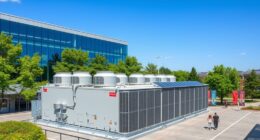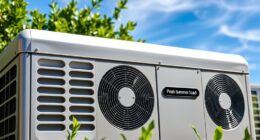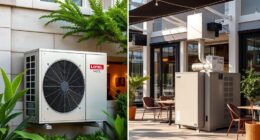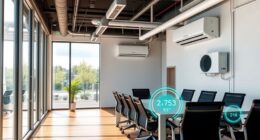Are you aware that enhancing the efficiency of a heat pump can result in substantial energy savings?
In this article, we will explore the benefits of maximizing heat pump efficiency for optimal energy conservation. We will discuss the factors that affect heat pump efficiency and share tips for improving its performance.
Additionally, we will delve into the importance of proper maintenance and explore advanced technologies that can enhance heat pump efficiency.
Join us as we uncover strategies to conserve energy and reduce your environmental impact.
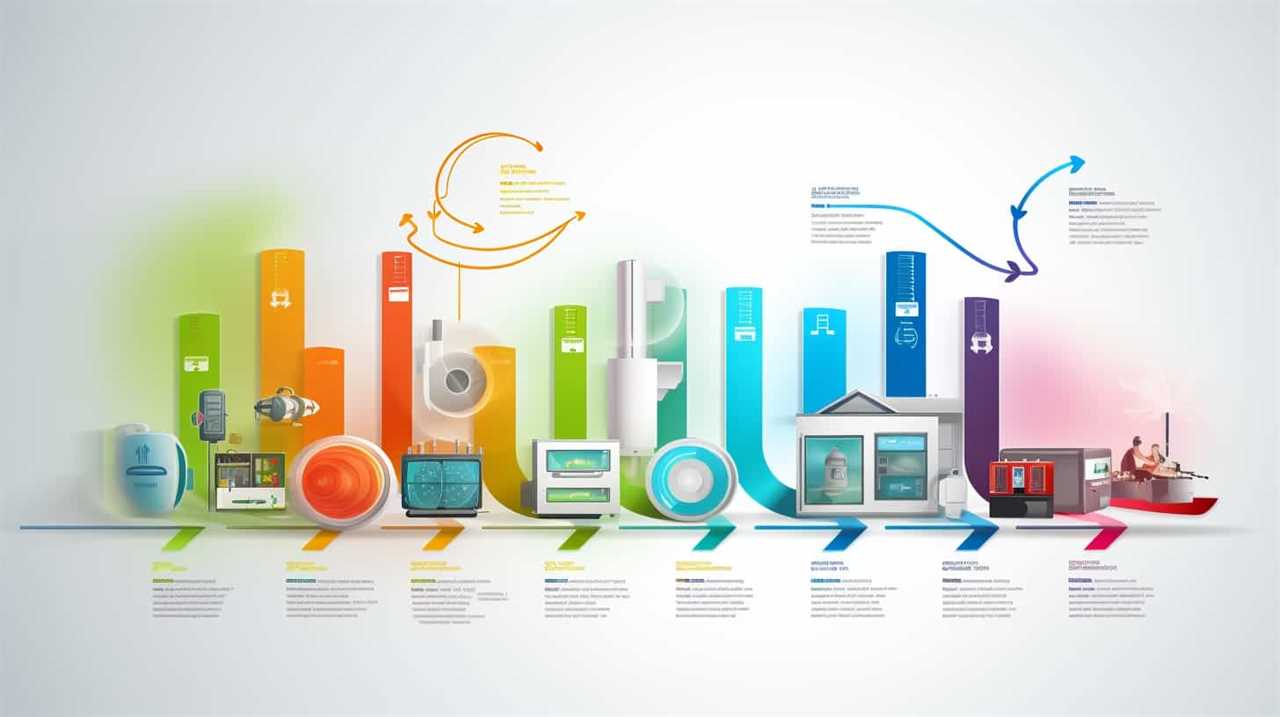
Key Takeaways
- Regular maintenance is crucial for maximizing heat pump efficiency.
- Proper heat pump sizing and refrigerant charge are important factors for efficiency.
- Cleaning and replacing air filters regularly can improve heat pump performance.
- Advanced technologies such as smart thermostat integration and variable speed compressors can enhance heat pump efficiency.
Benefits of Heat Pump Energy Efficiency
We can maximize energy savings by improving the efficiency of our heat pump. One of the key benefits of heat pump energy efficiency is the potential for significant cost savings over time. A more efficient heat pump consumes less energy, resulting in lower utility bills.
Regular maintenance plays a crucial role in achieving optimal energy conservation. By scheduling routine inspections and cleanings, we can ensure that our heat pump operates at peak efficiency. Regular maintenance also helps identify and address any potential issues before they escalate, preventing costly repairs down the line.
Additionally, energy saving tips such as setting the thermostat at optimal temperatures and properly insulating our homes can further enhance the efficiency of our heat pump.
Therefore, prioritizing regular maintenance and implementing energy saving practices can lead to substantial energy and cost savings in the long run.

Factors Affecting Heat Pump Efficiency
Two key factors that can affect heat pump efficiency are the temperature differential and the refrigerant charge.
The temperature differential refers to the difference in temperature between the heat source and the heat sink. A larger temperature differential means the heat pump has to work harder to transfer heat, resulting in reduced efficiency. This is why proper heat pump sizing is crucial during installation. Undersized heat pumps may struggle to meet heating or cooling demands, leading to inefficient operation. Oversized heat pumps, on the other hand, can short-cycle, causing frequent starts and stops, which reduces efficiency and increases wear and tear on the system.
Additionally, the refrigerant charge plays a significant role in heat pump efficiency. An improper refrigerant charge can lead to decreased performance and higher energy consumption. Therefore, it’s essential to ensure the correct refrigerant charge during heat pump installation to maximize efficiency and energy conservation.
Tips for Improving Heat Pump Performance
To enhance heat pump performance, we can implement simple measures and utilize effective strategies. Here are some tips for improving heat pump performance:
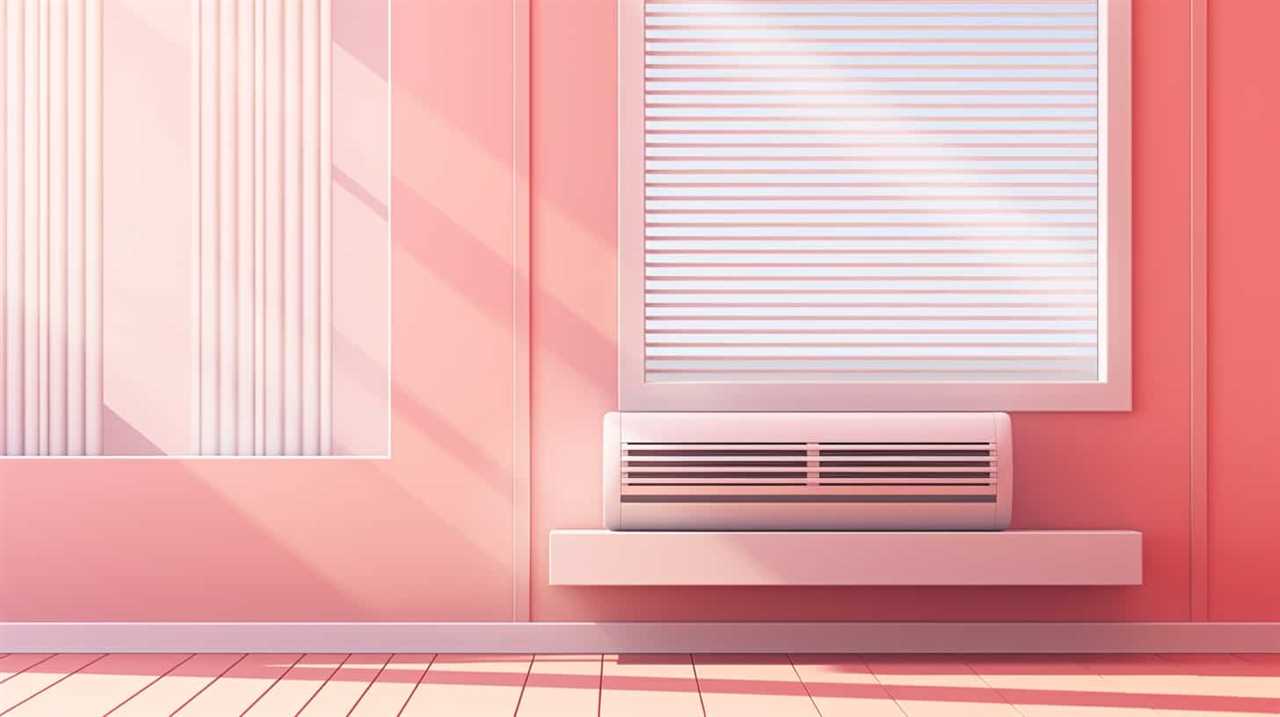
- Regularly clean and replace air filters to ensure proper airflow and prevent dust buildup.
- Keep the outdoor unit clear of debris and vegetation to maintain adequate airflow and prevent overheating.
- Schedule annual maintenance checks to identify and address any issues before they worsen.
- Adjust the thermostat settings to energy-saving modes and avoid excessive temperature fluctuations.
- Consider installing a programmable thermostat to optimize energy usage and reduce heating and cooling costs.
Proper Maintenance for Maximum Energy Conservation
Regular maintenance is essential for maximizing energy conservation and ensuring optimal heat pump efficiency. By following a maintenance checklist and implementing energy-saving techniques, homeowners can prolong the lifespan of their heat pumps and reduce energy consumption. Here is a table outlining key maintenance tasks and their recommended frequency:
| Maintenance Task | Recommended Frequency |
|---|---|
| Clean or replace filters | Monthly |
| Inspect and clean coils | Annually |
| Check refrigerant levels | Annually |
| Lubricate moving parts | Annually |
| Inspect electrical connections | Annually |
| Clean outdoor unit | Annually |
Following this maintenance checklist will not only maximize energy conservation but also prevent costly repairs and ensure the heat pump operates at peak performance. In the next section, we will explore advanced technologies for enhanced heat pump efficiency.
Transition: Now that we have covered the importance of regular maintenance, let’s delve into the realm of advanced technologies for enhanced heat pump efficiency.
Advanced Technologies for Enhanced Heat Pump Efficiency
Now, let’s explore the use of advanced technologies to enhance the efficiency of our heat pumps. By incorporating smart thermostat integration and variable speed compressors, we can significantly improve the performance of our heat pump systems. Here are five key advancements in heat pump technology that can help maximize efficiency:
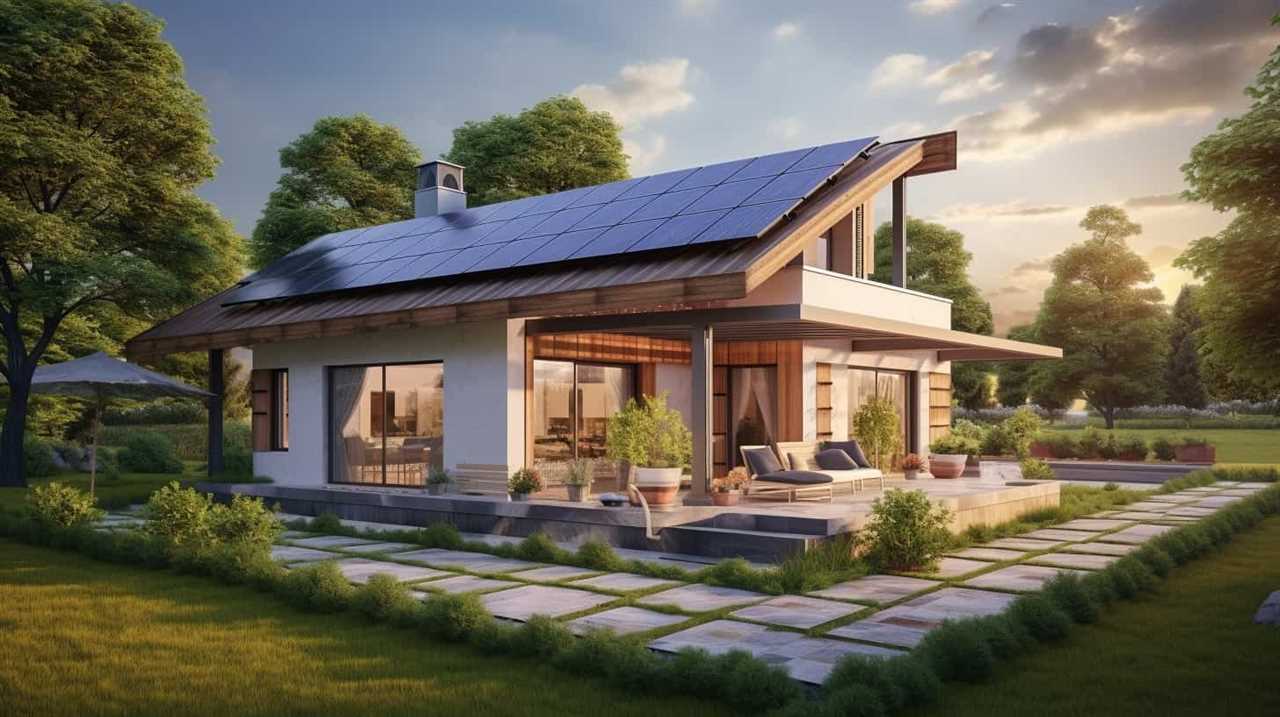
-
Smart Thermostat Integration: By connecting our heat pumps to smart thermostats, we can optimize temperature settings and control energy usage based on occupancy and weather conditions.
-
Variable Speed Compressors: These compressors adjust their speed based on demand, allowing for precise temperature control and reducing energy waste.
-
Enhanced Heat Exchangers: New heat exchanger designs with improved surface area and heat transfer capabilities increase the efficiency of heat transfer between the refrigerant and the surrounding air or water.
-
Dual Fuel Systems: These systems combine a heat pump with a backup heating source, such as a gas furnace, to ensure optimal efficiency in all weather conditions.
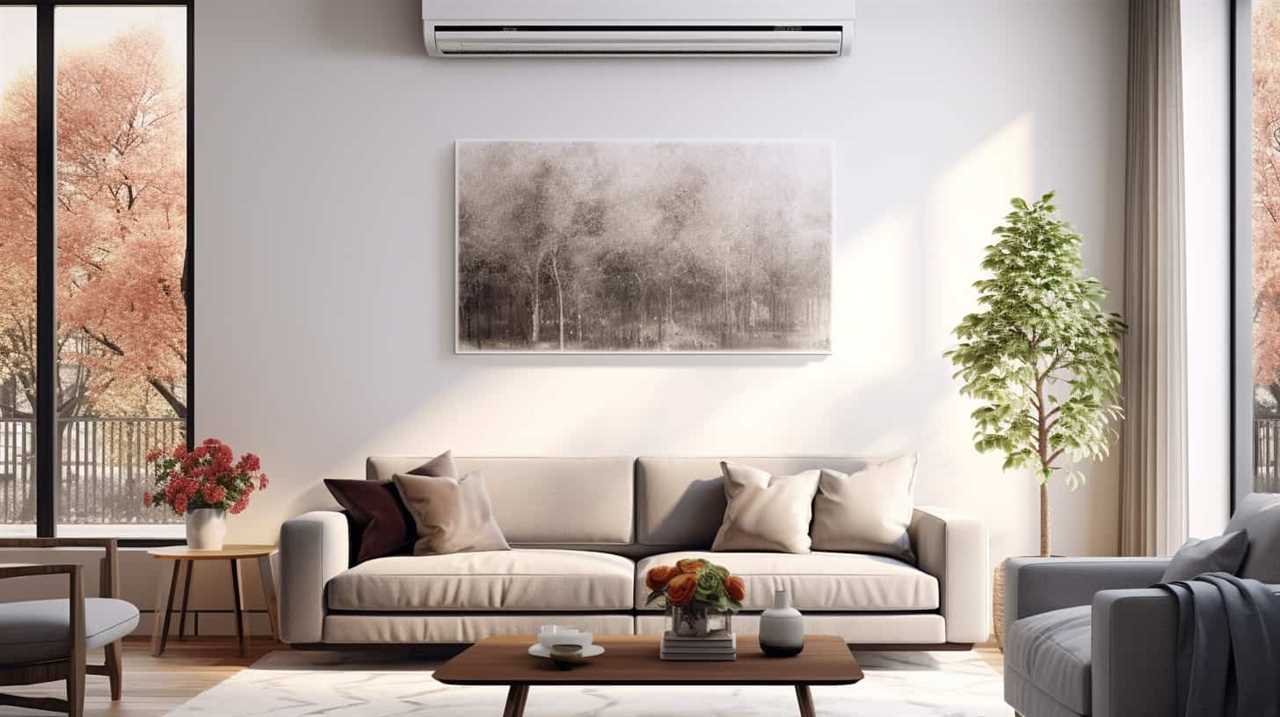
-
Advanced Controls and Algorithms: Utilizing sophisticated control systems and algorithms can optimize the operation of heat pumps, continuously adjusting performance to maximize efficiency.
Implementing these advanced technologies can help us achieve optimal energy conservation and reduce our carbon footprint.
Frequently Asked Questions
How Long Does a Heat Pump Typically Last Before Needing to Be Replaced?
Heat pumps typically last around 15-20 years before needing replacement. Regular heat pump maintenance, such as cleaning filters, checking refrigerant levels, and inspecting for signs of a failing heat pump, can help extend its lifespan.
Are There Any Government Incentives or Tax Credits Available for Installing a Heat Pump?
Government incentives and tax credits can be available for installing a heat pump. These incentives and credits aim to promote energy conservation and make the transition to more efficient heating systems financially appealing for consumers.
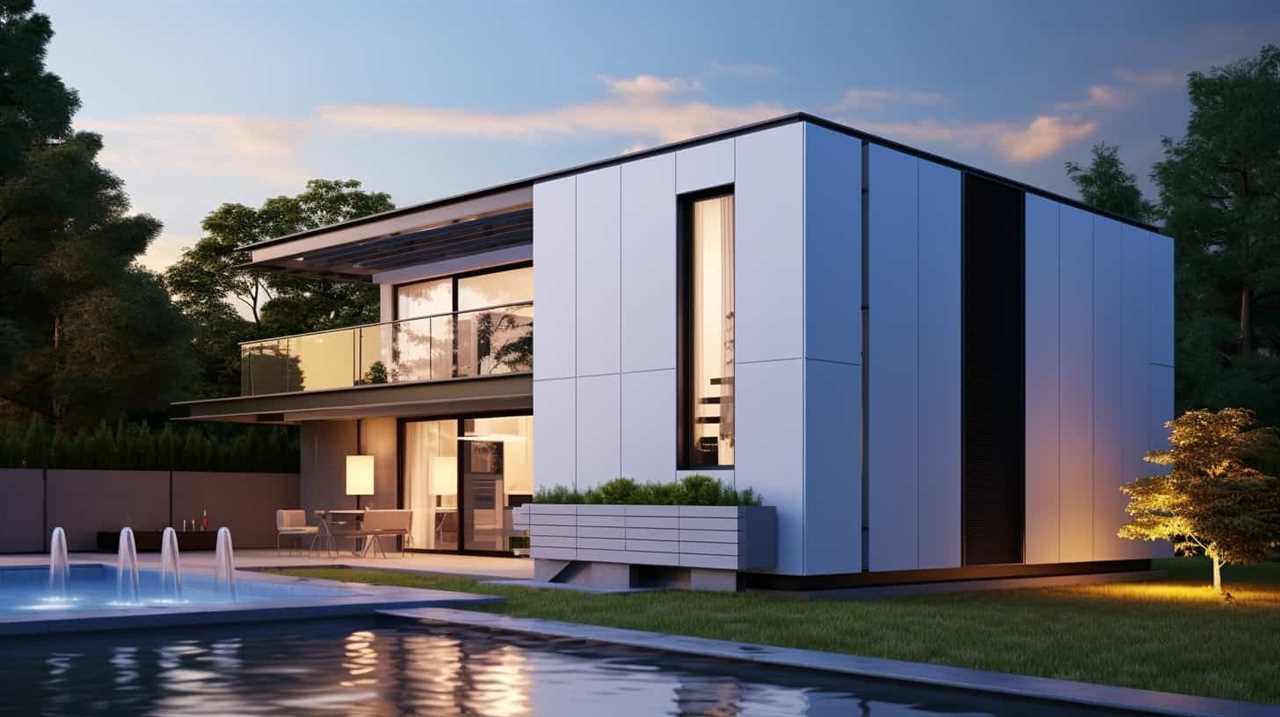
Can a Heat Pump Be Used as the Sole Source of Heating and Cooling in a Home?
Yes, a heat pump can be used as the sole source of heating and cooling in a home. This offers several benefits, such as increased heat pump efficiency and optimal energy conservation.
What Size Heat Pump Is Suitable for My Home?
When considering heat pump installation, it is crucial to determine the suitable size for your home. This ensures optimal energy conservation and maximizes the benefits of heat pumps. Expert advice and accurate calculations are essential.
Are Heat Pumps Noisy When in Operation?
Noise levels during heat pump operation vary depending on the model and installation. However, it is possible to maximize heat pump efficiency for optimal energy conservation by choosing a quiet model and ensuring proper installation and maintenance.
Conclusion
To achieve maximum energy conservation and optimize heat pump efficiency, it’s crucial to implement proper maintenance and utilize advanced technologies.
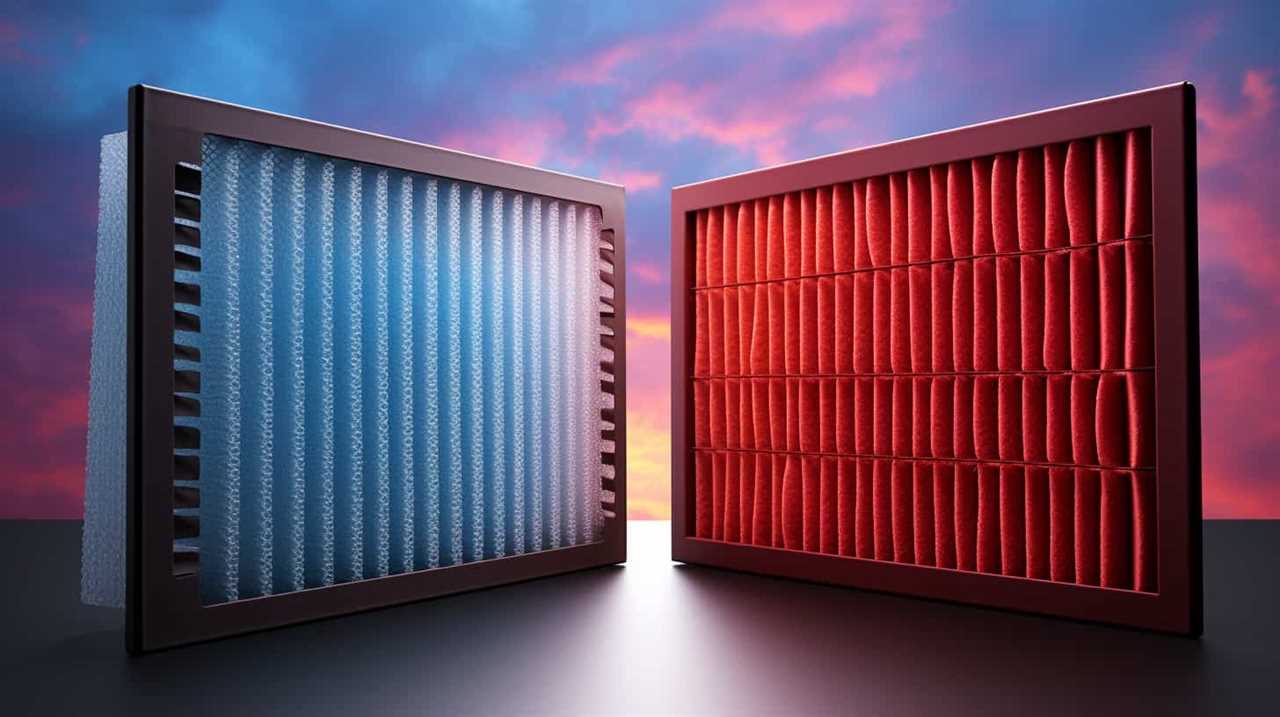
By following these tips and considering the factors that affect heat pump efficiency, we can significantly reduce energy consumption.
With these strategies in place, we can harness the power of heat pumps to their fullest potential, achieving outstanding energy savings that will leave you in awe.






